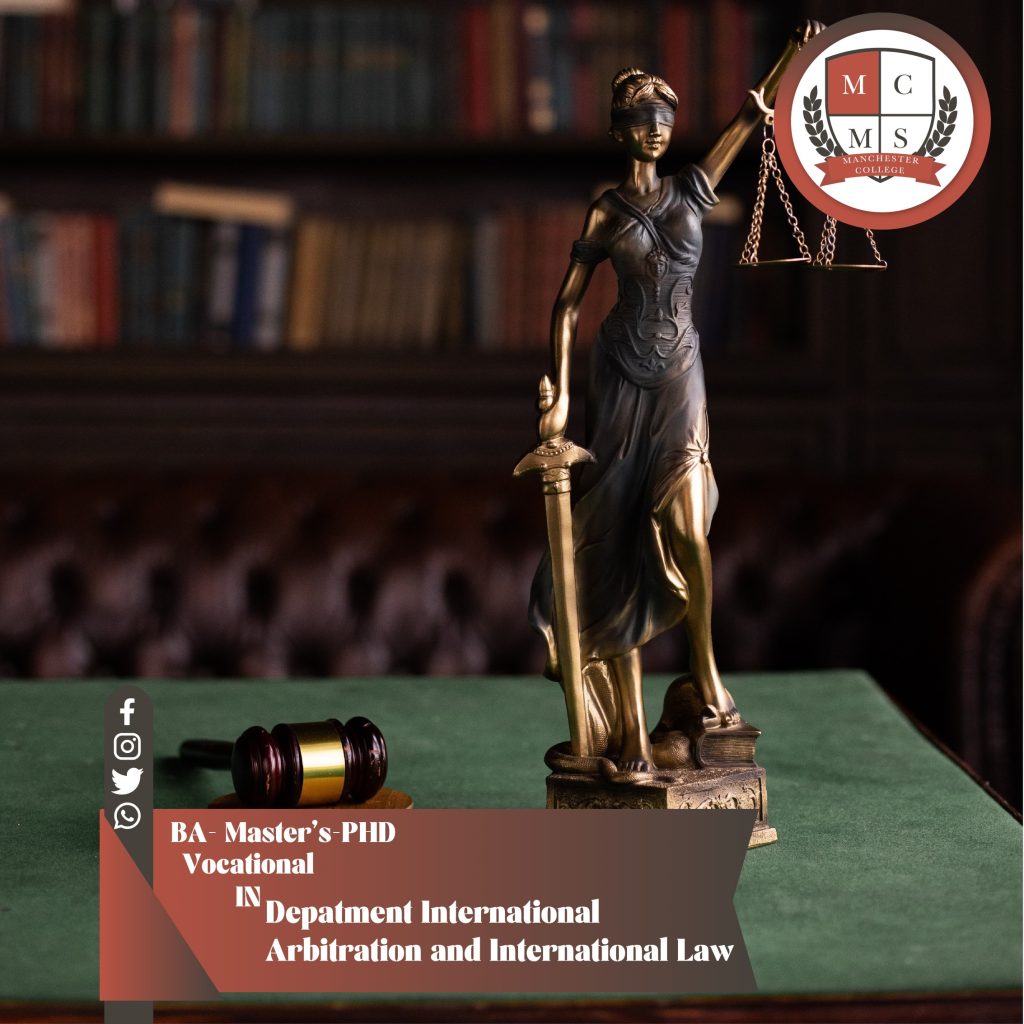Depatment International Arbitration and International Law
Depatment International Arbitration and International Law

اتصل بنا عبر البريد الإلكتروني على info@manchestercollege.com أو أرسل استفسارًا تجاريًا عبر الإنترنت.
who should attend?
Lawyers – judges and prosecutors – lawyers of all categories – directors of legal, administrative and financial affairs – economists and consultants in all disciplines – businessmen – university students and graduate students
objective
The program aims to:
Learn about the judicial system and its competences
Preparing participants on how to apply the law
Use knowledge of arbitration to negotiate the terms
Qualification of arbitrators in all fields and lawyers interested in the field of arbitration
content
Materials specializing in international arbitration and international law:
Civil law
Commercial law
Civil and commercial litigation law
International commercial arbitration
About materials:
1. Civil Law is one of the most important branches of the law governing relationships between persons who do not act as sovereigns, and civil law regulates financial legal ties except in relation to trade and personal relations of individuals. The main themes of this article:
-Law and its application.
– Conflict of laws.
-Personal obligations or rights.
2- Commercial Law: Is a set of legal rules governing the conduct of business and traders and defines the applicable legal system. This principle is based mainly on the prohibition of forms of dealing with the trader or the trader with others and regulating them in order to allow the law to clarify all that hinders the freedom of trade.
Our interlocutors in this article:
– Trade in general.
-Registration in the commercial register.
– Commercial agency contract.
– Avoidance and avoidance of sale.
– Provisions for the provision of the shop as a contribution to the company.
3. Civil and Commercial Cranes Act: A set of rules governing the judiciary, which sets out the procedures to be followed in the courts, on disputes concerning matters of private law. This law is not concerned with the statement of the rights and duties of individuals, such as what is followed in the various branches of the law, we will address together these basic themes:
-The judicial system.
-Conflict of laws in private international law.
-Jurisdiction.
– Rules of the Law of Pleadings.
5.International Commercial Arbitration: It is a means of resolving disputes arising from international trade contracts, a special jurisdiction concerned by the parties, and this jurisdiction avoids many disadvantages of litigation before the local judiciary in the states of the parties to the dispute, and is characterized by many advantages that are consistent with the needs of international trade that need to speed up the resolution of disputes of their own, from a specialized judiciary with the know-how, which is characteristic of arbitration.
The main themes of this article:
– International arbitration resources.
– Model arbitration clauses.
– Arbitration laws.
– The search method is for international arbitrators.
Looking for higher education, at the postgraduate level (Master’s, Professional Doctorate) ?
